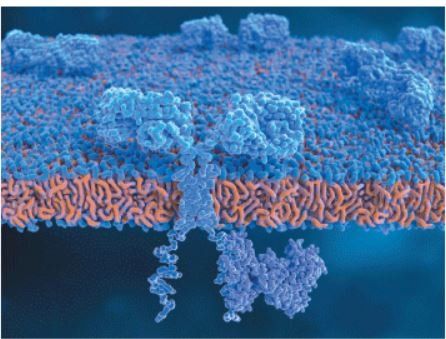Meeting With FDA “Successful” Regarding PT-112 in mCRPC
Following a positive meeting with the FDA, PT-112 is set to advance to a phase 3 trial for patients with metastatic castration-resistant prostate cancer.
Preliminary results from the phase 2 trial that supported PT-112 in metastatic castration-resistant prostate cancer will be presented at the 2025 ASCO Annual Meeting.

There was a successful, in-person end-of-phase 2 meeting with the FDA regarding PT-112 monotherapy in the treatment of patients with metastatic castration-resistant prostate cancer (CRPC), which now allows the company to submit a registrational phase 3 study in the indication, according to a press release from the developer, Promontory Therapeutics.1
The developer will now prepare its phase 3 study submission based on the FDA’s guidance and plans to conduct similar meetings with international regulatory agencies.
During the meeting, the FDA agreed with the proposed dosing regimen, the study design and end points, the proposed comparator, and the statistical framework; there was also agreement on the proposed patient population within metastatic CRPC and the proposal for an interim analysis.
All agreements were based on a previously completed phase 2 trial (NCT02266745). The trial evaluated the safety, pharmacokinetics, and clinical effects of intravenous PT-112 in metastatic CRPC in cohort D of the trial. Preliminary results will be shared at the 2025 American Society of Clinical Oncology Annual Meeting in a poster titled “Preliminary Phase 2 Results of PT-112 Monotherapy in Late-Line Metastatic Castration-Resistant Prostate Cancer (mCRPC).”
AACR Poster
Additionally, immune response biomarker data for PT-112 were presented at the 2025 American Association for Cancer Research Annual Meeting.2 The conclusion from that presentation was that PT-112 demonstrated strong immune activity. In the trial, blood samples were collected from 74 patients in the metastatic CRPC trial and analyzed via T-cell receptor sequencing; blood samples from 14 patients with thymic epithelial tumors were also analyzed.
Samples showed statistically significant changes such as an increase in proliferative and NKp46-positive natural killer cells, proliferative CD4+ and CD8+ T cells, and PD-L1–positive monocytes. Also, of the patients with available samples, 39% demonstrated marked T-cell clonal expansions comparing the baseline and C2D1 samples.
In that poster, lead study author Renee N. Donahue, PhD, a staff scientist and head of the Cellular Immunology Group of the Center for Immuno-Oncology at the National Cancer Institute, wrote with coauthors, “Treatment with PT-112 induces robust signals of immune activation across the adaptive and innate immune systems in 2 separate diseases. These results are consistent with prior preclinical findings and are indicative of PT-112’s immunomodulatory effects underlying its anticancer activity.”2
Of the patients with metastatic CRPC included in the poster, the median age was 71 years (range, 48-88), all were men, and all had stage IV disease.
Trial Data
There were 3 experimental trial arms: arm 1 was PT-112 injection administered intravenously at 360 mg/m2 biweekly; arm 2 was PT-112 injection administered intravenously at 250 mg/m2 biweekly; and arm 3 was PT-112 injection administered intravenously at 360 mg/m2 for 2 doses, then 250 mg/m2 for all subsequent doses.3
Eligible patients in the trial were 18 years or older with histologically or cytologically confirmed adenocarcinoma of the prostate and current evidence of metastatic CRPC who received at least 3 intended prior life-prolonging therapies for metastatic disease. Additionally, patients had progressive disease, an ECOG performance status of 0 or 1, and adequate organ function.
Exclusion criteria include any cytotoxic chemotherapy within 21 days of study drug initiation; any immunomodulatory drug therapy, antineoplastic hormonal therapy, immunosuppressive therapy, corticosteroids, or growth factor treatment within 14 days of initiation; inadequate bone marrow reserve; radiotherapy within 14 days of baseline; and major surgery within 28 days of initiation.
The trial’s primary end points were to define the recommended dose and schedule for PT-112 based on the risk-benefit ratio across arms 1, 2, and 3. Secondary end points included disease control rate, objective response rate, median duration of response, radiographic progression-free survival, overall survival, and change in disease-related pain.
References
- Promontory Therapeutics announces successful end of phase 2 meeting with US FDA on phase 3 registrational study design for PT-112 in patients with metastatic castration-resistant prostate cancer. News release. Promontory Therapeutics. May 20, 2025. Accessed May 21, 2025. https://tinyurl.com/scxybfwd
- Rajan A, Ames TD, Celades-Errando C, et al. Anti-cancer immune effects of PT-112 monotherapy across two disease indications. Abstract presented at: 2025 American Association for Cancer Research Annual Meeting; April 25-30, 2025; Chicago, IL. Abstract 5819.
- A study evaluating the safety, pharmacokinetics, and clinical effects of intravenously administered PT-112 injection in subjects with advanced solid tumors and subsequent dose expansion cohorts. ClincialTrials.gov. Updated April 5, 2024. Accessed May 21, 2025. https://tinyurl.com/98d7hfp6
Prolaris in Practice: Guiding ADT Benefits, Clinical Application, and Expert Insights From ACRO 2025
April 15th 2025Steven E. Finkelstein, MD, DABR, FACRO discuses how Prolaris distinguishes itself from other genomic biomarker platforms by providing uniquely actionable clinical information that quantifies the absolute benefit of androgen deprivation therapy when added to radiation therapy, offering clinicians a more precise tool for personalizing prostate cancer treatment strategies.